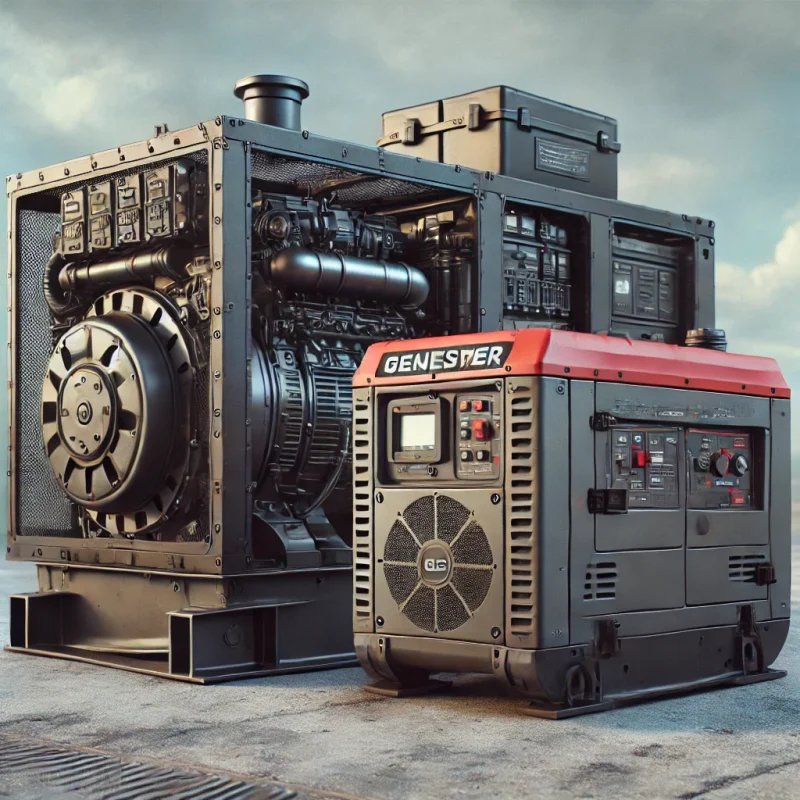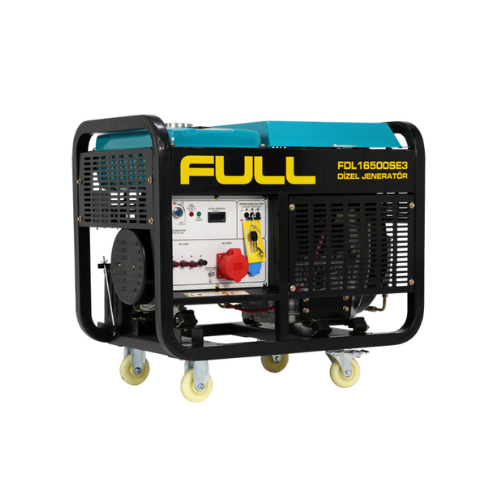the generators
✅ Choosing a fuel type – gasoline or diesel?
Gasoline-powered devices are optimal for short-term use, as they are easy to start and produce less noise. Small-capacity versions are especially popular in domestic settings where an emergency power source is needed for a short period of time.
On the other hand, diesel-powered systems are characterized by long-lasting operation and fuel efficiency, making them an excellent solution for industrial and commercial sectors. High-capacity models are ideal for those who need uninterrupted power under heavy load conditions.
✅ Portable vs. Fixed Devices – Which is Right for You?
Small, easy-to-carry devices are ideal for travel, construction sites, and small businesses. Lightweight and compact models fit easily into vehicles and take up minimal space.
Fixed versions are designed for stationary use and are often used in companies, factories or large residential buildings. Such models are more powerful and durable, have an automatic start function and provide long-term operation under heavy loads.
✅ Technological innovations and modern features
Modern models have various additional features that improve the user experience. An automatic start system ensures uninterrupted operation in the event of a power outage, and noise reduction technology makes the device much more comfortable to operate.
Some versions come with digital control panels that provide real-time information on energy consumption, load, and fuel levels. These features are especially useful when it comes to powering enterprises or large facilities.
✅ Energy efficiency and cost optimization
A properly selected power supply system significantly reduces costs. Low fuel consumption and maximum power output help reduce costs. Diesel-powered models are more economical for long-term use, as fuel consumption is much lower in their case.
Commonly used models are equipped with eco-friendly technologies that reduce harmful emissions. This is especially important for businesses that adhere to environmental standards and are looking for energy-efficient solutions.
✅ Investment value and long-term operation
When purchasing, consumers often wonder which option is more durable. High-quality models provide stable and long-lasting performance, making them an ideal investment.
High-power versions may be more expensive, but they allow you to save on fuel and maintenance costs. With proper care and regular maintenance, the device will work reliably for decades.
✅ The best choice based on individual needs
Depending on the needs, users can choose models of different capacities and types. Devices from 1.5 kVA to 10 kVA are perfect for home environments and small businesses, while models from 20 kVA to 50 kVA are designed for larger facilities.
Models from 100 kVA to 630 kVA are already used for heavy loads, especially in enterprises, hospitals and other large facilities where uninterrupted power supply is necessary.
✅ Summary – What to consider when purchasing?
- power: It is necessary to select a model that fully meets the load requirements.
- Fuel type: Diesel is ideal for long-term use, while gasoline is ideal for portability.
- Service and operation: Easy-to-maintain and high-quality equipment is guaranteed to last a long time.
- Energy efficiency: Fuel economy is important for reducing long-term costs.
Making the right choice will not only help you maintain a constant supply of energy, but also reduce costs. If you need more information about specific models, I can provide you with a detailed comparison! 🚀




